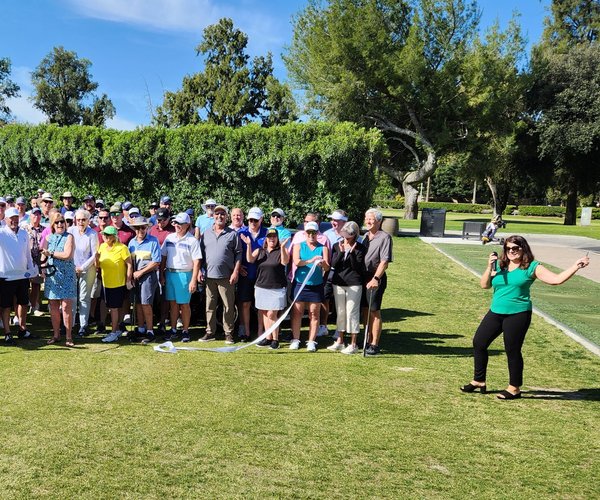In an effort to combat Turlock’s growing vagrancy problem, City of Turlock staff, downtown property owners and homeless service providers met once again on Thursday to discuss potential action plans. Despite lively participation on all sides of the discussion, progress has yet to be made.
“I’m pretty sure that we are all aware there are issues going on all around us, whether it’s in our alleys, whether it’s in front of our businesses or behind our businesses, whether it’s at a restaurant or even at the shelters themselves,” Turlock Police Chief Nino Amirfar said at Thursday’s meeting. “It’s a continuous issue that, as a community, we need to come together on. Trying to do it in a one-hour meeting, I’m going to be rational…this is ridiculous.”
The meeting was the third of its kind in the last three months and included City of Turlock Director of Economic Development and Housing Maryn Pitt, Parks, Recreation and Facilities Manager Eric Schulze, Fire Marshall Mark Gomez, members of the Turlock Downtown Property Owners Association and service providers United Samaritans, We Care and Turlock Gospel Mission.
The 2018 Stanislaus County homeless count reported that there are 155 unsheltered individuals in Turlock, which is down from the 2017 total of 248. Despite the drop in numbers, a visible increase in transient presence downtown has resulted in business owners often finding sleeping individuals, used needles and even human excrement at their alley-facing back doors, resulting in the TDPOA approaching the City and Turlock service providers in April to address the issue.
Thursday’s meeting also included Turlock City Council members Gil Esquer and Amy Bublak, who were the only members present in order to avoid violating the Brown Act — a law requiring that members of a public body conduct their meetings and deliberations within the public’s presence. A “meeting” is defined by the Brown Act as a gathering of a majority of the members of a body, meaning that with just two council members in attendance, no laws were broken.
Mayor Gary Soiseth was present at the meeting’s start, and he expressed his hopes that the city can work towards a solution before slipping out of the room so that Esquer could enter. Soiseth said that the issue needs to be tackled in other areas of town as well, like City parks.
“Illegal activity in our parks is unacceptable and we have to act quickly,” said Soiseth. “I just returned from the U.S. Conference of Mayors where we discussed creative solutions to tackle issues surrounding homelessness and illegal activity in public spaces. In addition to what ideas our community might have from the workshops at City Hall, I’m looking forward to getting some of these national ideas applied in Turlock in the coming weeks.”
Chief Amirfar said that one of his main concerns regarding Turlock’s homeless population is their property, which is often seen taking up space in parks, on sidewalks and downtown benches. It’s unsightly, he said, but pointed out that they often have no other place to put their things.
“We all have homes to store our property in, but they don’t. They have to carry it or they have to leave it somewhere, or else someone else is going to take it from them,” he said. “Granted, some of their property we wouldn’t want, but it’s theirs. What are we doing to help them out with that?”
Other problems, as business owners have pointed out, include defecation and urination near downtown shops. According to Supreme Court law, Amirfar said, TPD officers cannot cite the homeless for going to the bathroom unless they have been provided areas to utilize the restroom. Currently, the only public restrooms available downtown are at the three homeless service providers: United Samaritans, We Care and Turlock Gospel Mission.
“Quite frankly, the Gospel Mission is not enough, United Samaritans is not enough, We Care is not enough,” Amirfar said, pointing out that because of overuse, the We Care bathrooms will be refurbished.
While portable toilets in the downtown area were suggested as one solution to this problem, nothing has been decided on yet. To help get things into motion, the large group on Thursday split themselves into five “subcommittees,” suggested by Bublak to address the “myriad of problems” that homelessness causes. The five subcommittees are: community engagement and service providers, business, prevention and jobs, care and housing.
“There are a certain amount of different issues that come from the main issues,” Bublak said. “I don’t think it should be just one group solving it.”
Amirfar highlighted some of those issues with enforcement statistics from the downtown area, which included the number of municipal code violations for infractions such as pet licensing and camping, as well as calls for suspicious persons, arguments and mental health-related incidents.
In the quadrant surrounding Jura’s Pizza and U.S. Bank, there have been 270 calls for service since Jan. 1. Near the Wells Fargo Bank area, there have been 357 calls. In the downtown core area near Red Brick Bar and Grill and Memo’s Cocina, there were 585 calls in the last six months, and near Jack in the Box and La Mo Café, there have been 603 calls.
“If you start really blowing these areas up into their complete quadrants, that is an astronomical number,” Amirfar said, adding that the downtown core accounts for 50 percent of all the calls for service in the five mentioned quadrants.
Looking ahead, the subcommittees hope to combine information shared by Amirfar with their own knowledge regarding their respective groups and continue to meet monthly. When they do come up with a plan of action, they hope to present it to the Turlock City Council for discussion.
Community members present at the meeting also signed up to be on different committees, and the groups are open to welcoming more concerned citizens who would like to join. Those interested in joining one of the subcommittees can contact Molly Amant of TDPOA at 209-202-4323.





